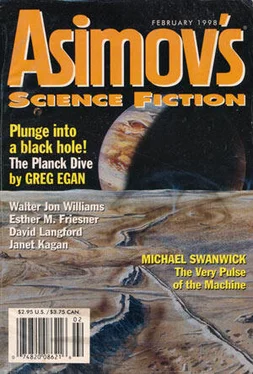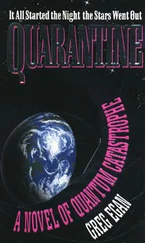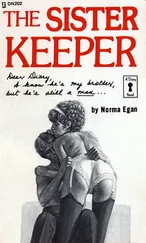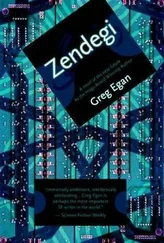Greg Egan - The Planck Dive
Здесь есть возможность читать онлайн «Greg Egan - The Planck Dive» весь текст электронной книги совершенно бесплатно (целиком полную версию без сокращений). В некоторых случаях можно слушать аудио, скачать через торрент в формате fb2 и присутствует краткое содержание. Год выпуска: 1998, Издательство: Dell Magazines, Жанр: Фантастика и фэнтези, на английском языке. Описание произведения, (предисловие) а так же отзывы посетителей доступны на портале библиотеки ЛибКат.
- Название:The Planck Dive
- Автор:
- Издательство:Dell Magazines
- Жанр:
- Год:1998
- ISBN:нет данных
- Рейтинг книги:3 / 5. Голосов: 1
-
Избранное:Добавить в избранное
- Отзывы:
-
Ваша оценка:
- 60
- 1
- 2
- 3
- 4
- 5
The Planck Dive: краткое содержание, описание и аннотация
Предлагаем к чтению аннотацию, описание, краткое содержание или предисловие (зависит от того, что написал сам автор книги «The Planck Dive»). Если вы не нашли необходимую информацию о книге — напишите в комментариях, мы постараемся отыскать её.
“Cocoon” (May 1994); “Luminous” (September 1995); and “Tap” (November 1995), have all made the Hugo award’s final ballot. The paperback edition of Mr. Egan’s near-future novel,
and the hard-cover edition of his far-future novel,
have just been released by HarperPrism.
The Planck Dive — читать онлайн бесплатно полную книгу (весь текст) целиком
Ниже представлен текст книги, разбитый по страницам. Система сохранения места последней прочитанной страницы, позволяет с удобством читать онлайн бесплатно книгу «The Planck Dive», без необходимости каждый раз заново искать на чём Вы остановились. Поставьте закладку, и сможете в любой момент перейти на страницу, на которой закончили чтение.
Интервал:
Закладка:
As the disk itself grew, the distortion around it spread faster. By ten M, Chandrasekhar was less than sixty degrees wide, but even constellations in the opposite half of the sky were visibly crowded together, as incoming light rays were bent into more radial paths. The gravitational blue shift, uniform across the sky, was strong enough now to give the stars a savage glint—not so much icy, as blue-hot. On the map, the light cones dotted along their world line—structures like stylized conical hourglasses, made up of all the light rays passing through a given point at a given moment—were beginning to tilt toward the hole. Light cones marked the boundaries of physically possible motion; to cross your own light cone would be to outrace light.
Gisela created a pair of binoculars and offered them to Cordelia. “Try looking at the halo.”
Cordelia obliged her. “Ah! Where did all those stars come from?”
“Lensing lets you see the stars behind the hole, but it doesn’t stop there. Light that grazes the three-M shell orbits part-way around the hole before flying off in a new direction—and there’s no limit to how far it can swing around, if it grazes the shell close enough.” On the map, Gisela sketched half a dozen light rays approaching the hole from various angles; after wrapping themselves in barber’s-pole helices at slightly different distances from the three-M cylinder, they all headed off in almost the same direction. “If you look into the light that escapes from those orbits, you see an image of the whole sky, compressed into a narrow ring. And at the inner edge of that ring, there’s a smaller ring, and so on—each made up of light that’s orbited the hole one more time.”
Cordelia pondered this for a moment. “But it can’t go on forever, can it? Won’t diffraction effects blur the pattern, eventually?”
Gisela nodded, hiding her surprise. “Yeah. But I can’t show you that here. This scape doesn’t run to that level of detail!”
They paused at the three-M shell itself. The sky here was perfectly bisected: one hemisphere in absolute darkness, the other packed with vivid blue stars. Along the border, the halo arched over the dome like an impossibly geometricized Milky Way. Shortly after Cartan’s arrival, Gisela had created a homage to Escher based on this view, tiling the half-sky with interlocking constellations that repeated at the edge in ever-smaller copies. With the binoculars on 1000 X, they could see a kind of silhouette of the platform itself “in the distance”: a band of darkness blocking a tiny part of the halo in every direction.
Then they continued toward the event horizon—oblivious to both tidal forces and the thrust they would have needed to maintain such a leisurely pace in reality.
The stars were now all brightest at ultraviolet frequencies, but Gisela had arranged for the dome to filter out everything but light from the flesher visible spectrum, in case Cordelia’s simulated skin took descriptions of radiation too literally. As the entire erstwhile celestial sphere shrank to a small disk, Chandrasekhar seemed to wrap itself around them—and this optical illusion had teeth. If they’d fired off a beam of light away from the hole, but failed to aim it at that tiny blue window, it would have bent right around like the path of a tossed rock and dived back into the hole. No material object could do better; the choice of escape routes was growing narrower. Gisela felt a frisson of claustrophobia; soon she’d be doing this for real.
They paused again to hover—implausibly—just above the horizon, with the only illumination a pin-prick of heavily blue-shifted radio waves behind them. On the map, their future light cone led almost entirely into the hole, with just the tiniest sliver protruding from the two-M cylinder. Gisela said, “Shall we go through?”
Cordelia’s face was etched in violet. “How?”
“Pure simulation. As authentic as possible… but not so authentic that we’ll be trapped, I promise.”
Cordelia spread her arms, closed her eyes, and mimed falling backward into the hole. Gisela instructed the platform to cross the horizon.
The speck of sky blinked out, then began to expand again, rapidly. Gisela was slowing down time a millionfold; in reality they would have reached the singularity in a fraction of a millisecond.
Cordelia said, “Can we stop here?”
“You mean freeze time?”
“No, just hover.”
“We’re doing that already. We’re not moving.” Gisela suspended the scape’s evolution. “I’ve halted time; I think that’s what you wanted.”
Cordelia seemed about to dispute this, but then she gestured at the now-frozen circle of stars. “Outside, the blue shift was the same right across the sky… but now the stars at the edge are much bluer. I don’t understand.”
Gisela said, “In a way it’s nothing new; if we’d let ourselves free-fall toward the hole, we would have been moving fast enough to see a whole range of Doppler shifts superimposed on the gravitational blue shift, long before we crossed the horizon. You know the starbow effect?”
“Yes.” Cordelia examined the sky again, and Gisela could almost see her testing the explanation, imagining how a blue-shifted starbow should look. “But that only makes sense if we’re moving—-and you said we weren’t.”
“We’re not, by one perfectly good definition. But it’s not the definition that applied outside.” Gisela highlighted a vertical section of their world line, where they’d hovered on the three-M shell. “Outside the event horizon—given a powerful enough engine—you can always stay fixed on a shell of constant tidal force. So it makes sense to choose that as a definition of being ‘motionless’—making time on this map strictly vertical. But inside the hole, that becomes completely incompatible with experience; your light cone tilts so far that your world line must cut through the shells. And the simplest new definition of being ‘motionless’ is to burrow straight through the shells—the complete opposite of trying to cling to them—and to make ‘map time’ strictly horizontal, pointing toward the center of the hole.” She highlighted a section of their now-horizontal world line.
Cordelia’s expression of puzzlement began to give way to astonishment. “So when the light cones tip over far enough… the definitions of ‘space’ and ‘time’ have to tip with them?”
“Yes! The center of the hole lies in our future, now. We won’t hit the singularity face-first, we’ll hit it future-first—just like hitting the Big Crunch. And the direction on this platform that used to point toward the singularity is now facing ‘down’ on the map—into what seems from the outside to be the hole’s past, but is really a vast stretch of space. There are billions of light-years laid out in front of us—the entire history of the hole’s interior, converted into space—and it’s expanding as we approach the singularity. The only catch is, elbow room and head room are in short supply. Not to mention time.”
Cordelia stared at the map, entranced. “So the inside of the hole isn’t a sphere at all? It’s a spherical shell in two directions, with the shell’s history converted into space as the third… making the whole thing the surface of a hypercylinder? A hypercylinder that’s increasing in length, while its radius shrinks.” Suddenly her face lit up. “And the blue shift is like the blue shift when the universe starts contracting?” She turned to the frozen sky. “Except this space is only shrinking in two directions—so the more the angle of the starlight favors those directions, the more it’s blue-shifted?”
“That’s right.” Gisela was no longer surprised by Cordelia’s rapid uptake; the mystery was how she could have failed to learn everything there was to know about black holes long ago. With unfettered access to a half-decent library and rudimentary tutoring software, she would have filled in the gaps in no time. But if her father had dragged her all the way to Cartan just to witness the Planck Dive, how could he have stood by and allowed Athena’s culture to impede her education? It made no sense.
Читать дальшеИнтервал:
Закладка:
Похожие книги на «The Planck Dive»
Представляем Вашему вниманию похожие книги на «The Planck Dive» списком для выбора. Мы отобрали схожую по названию и смыслу литературу в надежде предоставить читателям больше вариантов отыскать новые, интересные, ещё непрочитанные произведения.
Обсуждение, отзывы о книге «The Planck Dive» и просто собственные мнения читателей. Оставьте ваши комментарии, напишите, что Вы думаете о произведении, его смысле или главных героях. Укажите что конкретно понравилось, а что нет, и почему Вы так считаете.










